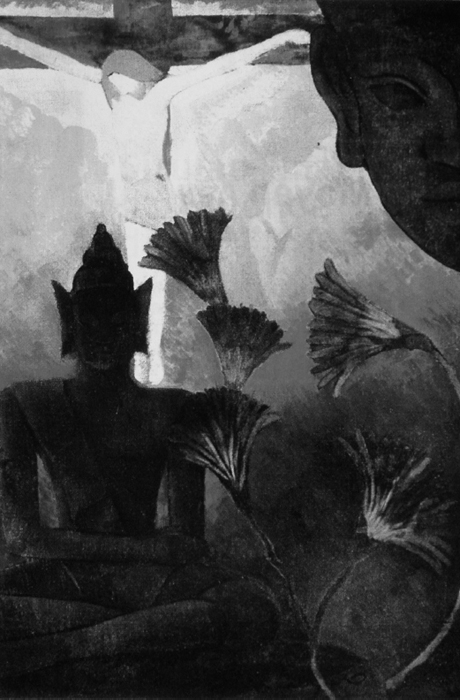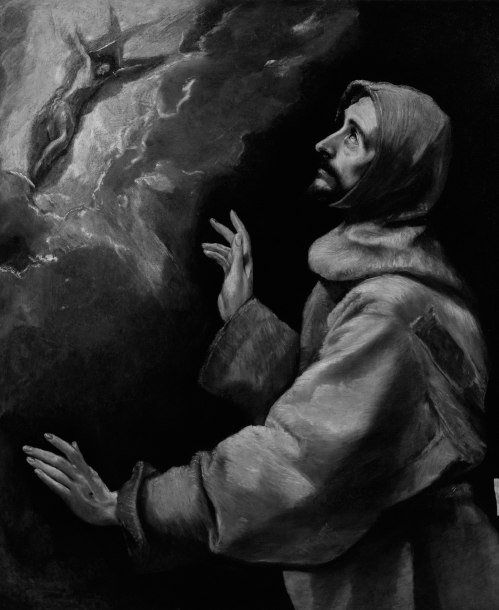
Enter by the narrow gate; for the gate is wide and the way is easy, that leads to destruction, and those who enter by it are many. For the gate is narrow and the way is hard, that leads to life, and those who find it are few.
—MATTHEW 7:13-14
These words of Jesus describe the choice we all have to make in life. The mass of humanity always chooses the wide gate because it leads to an enormous playground of sensual fun and enjoyable opportunities—until it becomes clear that there is nothing in the world of matter that provides permanent happiness—since everything is, by nature, impermanent. In the end, craving leads to suffering.
Those throughout history who have found and chosen to open the narrow gate, and take the road less traveled are very rare beings. They are the bravest men and women who have ever walked the planet because instead of setting out to conquer the world—which would be far easier in comparison—they seek to conquer themselves instead.
The two gates, the two paths, are always open to all of us, yet the narrow gate is quite unattractive to most. It lacks glitter, bling, shiny bright new things. Choosing it is counter-intuitive. The narrow gate opens onto a path of rigorous discipline, material deprivation, and constant inner struggle. No wonder so few choose the hero's journey when just living a normal life is hard enough.
Even so, the great mystics of all ages wanted more than a mere pot of gold at the end of a rainbow; more than riches, power, a yacht, and a private jet. They wanted more than fame and recognition, a place in history. They even wanted more than family, friends, and great sex. They wanted, instead, the pearl of great price, the jewel within the lotus. They wanted true peace of mind, true freedom, bliss consciousness, and the perpetual ecstasy that comes with the realization of one's essential union with the All. They wanted the greatest treasure in life: to become enlightened; to become liberated from human suffering; to become one with the All. They wanted a heart so open with love and compassion that it included every living thing.
The mere fact that you are reading these words, and I am writing them, means that you and I want what the great mystics of the past wanted. If there was a pill that we could take that would cleanse the lenses of our perception and allow us to instantly wake up, no doubt many of us would not hesitate to swallow it.
Unfortunately, there is no such pill. There is only that narrow gate which opens to a path that is unimaginably difficult to walk. So we hesitate at the gate's latch, play with it, lubricate it, swing the gate back and forth, and then paint it so that it will look nice. We may even stick our toes under the gate just to see what the path feels like. Even for those of us who are not yet ready to take the final journey, the path beckons nonetheless.
In our own defense, we argue that we have already come a great distance, survived uncountable struggles, and endured much suffering through many incarnations just to find the narrow gate—just to realize that there is another way to lead one's life. You and I have already realized truths about life and the nature of reality that most of humanity isn't even aware of, or couldn't care less about.

The day is coming, and we know it, when we will have the courage to open the gate and take our first step on the narrow path. In the meantime, we are preparing for this final journey in life by putting more useful things into our backpack and getting rid of more and more things we don't need.
I think it is significant that in the case of both Siddhartha Gautama (the historical Buddha) and Jesus of Nazareth, the mythology of temptation by Mara the evil one, and Satan, respectively, is so similar. Both myths make it clear that each man had to pass a final test—the last temptations. The-one-who-is-not-God—that which is in our own minds—offered them the world and all of its power and glitter if they would just renounce their silly quest for ultimate truth. But Siddhartha vanquished Mara, and Jesus vanquished Satan; and in doing so they became brothers: Siddhartha became the Buddha (awakened one) and Jesus became the Christ.
These two spiritual heroes, like many others whose words are recorded in this book—both men and women—wanted something far more precious than could be found on the road that is accessed through the wide gate. They wanted freedom from this veil of tears we call life.
And yet we today face even greater challenges than they did. Humanity has invented things that we no longer know how to live without: electricity, telephones, computers, automobiles. We could run away and join a monastic community, but nowadays a monastery may have the Internet, electricity, indoor plumbing, and automobiles.
These are times in which we must somehow transcend all of this, and yet we don't know how. Only the Perennial Philosophy offers a way out, and that way begins nowhere else but inside of us. In the Theologia Germanica we read:
The two eyes of the soul of man cannot both perform their work at once: but if the soul shall see with the right eye into eternity, then the left eye must close itself and refrain from working, and be as though it were dead. For if the left eye be fulfilling its office toward outward things, that is holding converse with time and the creatures; then must the right eye be hindered in its work; that is, in its contemplation. Therefore, whoever will have the one must let the other go; for no man can serve two masters.
